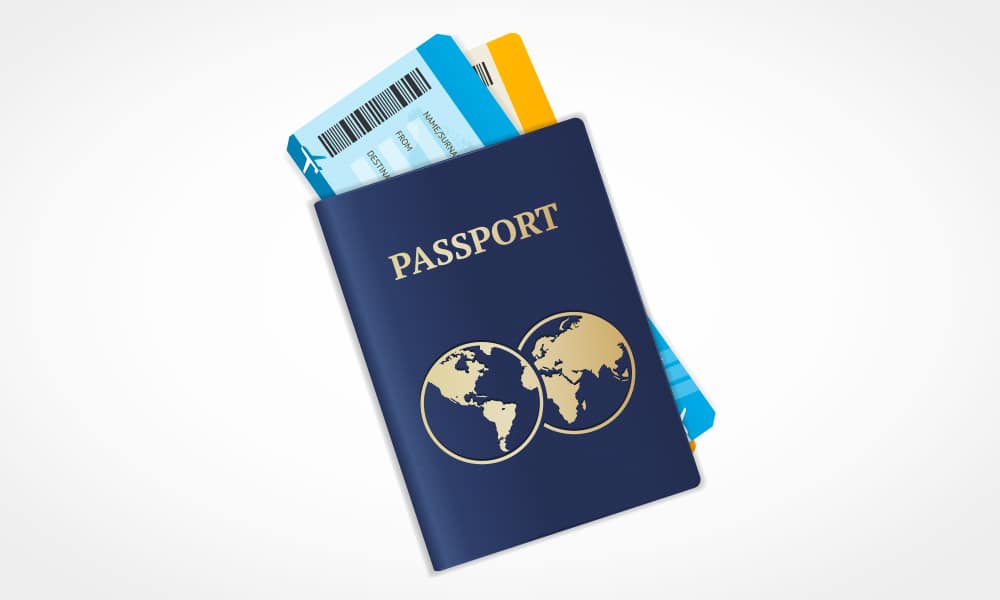- 1
- 2
- 3
- 4
- 1Destinations
- 2Trip Date
- 3Travellers
- 4Medical history
Popular Destinations

Now covers COVID-19
Things to Know Before Visiting Saudi Arabia
Saudi Arabia is a unique Middle Eastern destination with ancient history and modern cities. Visitors can enjoy historic sites in Riyadh, the cultural heritage of Jeddah, and the distinct scenery of Al Ula and Abha. Familiarity with a few things to know before visiting Saudi Arabia is essential. These vary from local customs and cultural norms, enriching your visit to Saudi Arabia.
Travel Insurance Plans on PolicyBazaar#1
- Individuals
- Sr. Citizens
- Students
Saudi Arabia at a Glance!
Saudi Arabia offers travellers unique destinations, from Riyadh's historic sites and Jeddah's cultural heritage to Al Khobar's coastal beauty, Abha's mountain retreats, and Al Ula's ancient wonders. About 1.5 million Indians visited in 2023, and by 2030, the goal is to increase that number to 7.5 million. This reflects the strong cultural and economic ties between the two nations.
The following table covers the essentials, including major airports, visa requirements, estimated daily budget, climate, best time to visit, and driving side in Saudi Arabia.
| Categories | Specification |
| Major Airports | ✅ King Abdulaziz Int. Airport (JED) and King Khalid Int. Airport (RUH) |
| IDL Requirement for Tourists | ✅ Indian tourists need an International Driving Permit (IDP) to drive in Saudi Arabia. |
| Minimum Budget for 1 Person | ✅ INR 9,998 - 31,675 per day |
| Average Temperature | ✅ Daytime temperatures vary by season and region, ranging from 23°C to 41°C. |
| Best Time to Visit | ✅ November to February |
| Driving Side | ✅ Right-hand |
*Please note that the costs are subject to change as per the current rate of conversions.
Saudi Arabia Visa Requirements for Indian Nationals
Indian citizens need a visa to visit Saudi Arabia. To apply for a Saudi Arabia visa, visit the official website:
For a Saudi Arabia visit visa, you'll need the following documents:
- A passport with at least six months of validity
- A recent photograph that meets Saudi visa photo requirements
- Proof of financial ability to cover expenses such as accommodation, food, and transportation during your stay
The visit visa for tourism allows travellers to enter Saudi Arabia for up to 90 days for a single entry or one year for multiple entries.
The visa fees for Saudi Arabia are as follows:
- Visa Fee: INR 6,698 – refundable
- Digital Visa Service Fee: INR 879 – non-refundable
9 Things to Know About Saudi Arabia
Some unique customs, rules, and habits might surprise you, so there are things to know before going to Nepal. Familiarising yourself with these before your trip will help you navigate the country quickly and confidently, ensuring a more enjoyable and respectful experience.
-
Dress Code Guidelines for Visitors
Saudi Arabia has a dress code focusing on modesty. For women, this means covering shoulders and knees, so sleeveless tops and short dresses are prohibited. Clothing should not be tight or see-through, and while tourists don't need to cover their hair, bikinis are off-limits, even at beaches. Men should also dress modestly; for example, shorts aren't allowed in mosques or government offices. Shorts are uncommon, and men should never go shirtless in public spaces.
-
Road Trip Adventures
With sunny weather, affordable fuel, and well-maintained roads, Saudi Arabia is ideal for road trips. Numerous rental agencies can help you get started. Popular routes include driving from Riyadh to Mada'in Saleh, passing through stunning desert landscapes and historic sites like Al-Diriyah Palace and Qasr Al-Farid.
The Red Sea coast also offers beautiful coastal roads, with stops in towns like Jeddah and Yanbu, perfect for exploring seaside attractions and the vibrant coral reefs.
-
Drinking Water Safety
In Saudi Arabia, tap water is generally safe for bathing and cooking. Still, it is recommended to drink bottled or filtered water due to its taste and possible mineral content. Using a water filter can improve safety and taste. Bottled water is widely available and commonly used for travellers.
-
Smoking and Alcohol Restrictions
Saudi Arabia has strict rules on smoking and alcohol. Smoking is restricted mainly in public areas like malls, restaurants, and government offices, with limited designated spaces. Violations can result in penalties. Alcohol is completely banned, including at hotels and on flights within Saudi airspace. Bags are scanned on arrival, and attempting to bring in alcohol can lead to deportation.
-
Respecting photography Rules
In Saudi Arabia, people should always seek permission before photographing individuals, as cultural norms place a high value on privacy and family reputation. There is a particular concern about images of women appearing online, which could harm their and their family's reputations.
Posting photos on social media without consent is a cybercrime that can result in a prison sentence or a fine of up to 500,000 Saudi Riyals (about INR 1,09,26,573). Additionally, avoid photographing restricted areas like military sites, airports, palaces, and religious monuments.
-
Interacting with Locals
Saudi locals may respond to you in various ways; some will be hospitable, while others might be indifferent. This largely depends on the individual's background, education, and approach towards them. Generally, it is best to interact with people of the same gender, as this aligns with cultural norms and can make interactions smoother.
-
Public Affection Guidelines
Avoid public displays of affection (PDA) in Saudi Arabia, as they are generally seen as disrespectful. Actions like hugging, kissing, holding hands, or sitting closely with someone of the opposite sex should be avoided in public. Married couples should also refrain from PDAs in public spaces like restaurants and parks. Respecting these customs helps prevent unwanted attention and shows regard for local cultural norms.
-
Culture and Prayer Times
As a religious Muslim country, Saudi Arabia observes five daily prayers from sunrise to sunset. During the azaan (call to prayer), shops and restaurants close temporarily, so visitors may be asked to step outside. It is helpful to download an athan app, as prayer times shift slightly each day, moving forward by a minute or two.
-
Weekend Traditions
In Saudi Arabia, the workweek starts on Sunday, with weekends on Friday and Saturday. Friday is a family day, so many shops and restaurants are closed until the afternoon, usually reopening around 2 p.m. or 4 p.m. Some restaurants may open for lunch. Visitors should plan accordingly, as weekends mean heavier traffic and longer lines.
Travel Tips For Saudi Arabia
This travel guide covers everything you need to know for a smooth and enjoyable visit to Saudi Arabia. This guide includes all the things to do before going to Saudi Arabia to help you confidently navigate the Kingdom. These range from essential cultural tips and local customs to transportation, weather, and valuable contacts,
-
Transportation Options
In Saudi Arabia, getting around is convenient, and various options are available. In major cities like Riyadh and Jeddah, taxis and ride-sharing apps such as Uber and Careem are popular and easy to use. For long-distance travel between cities, domestic flights are efficient and readily available.
Alternatively, car renting provides flexibility, especially for road trips to explore areas like Al Ula or the Red Sea coast. Major highways are well-maintained, and rental agencies are accessible at airports and city centres.
-
Payment Methods
Credit and debit cards are widely accepted in Saudi Arabia, particularly in hotels, restaurants, and larger stores. However, carrying some cash is recommended for small purchases or in areas where card payments are unavailable. ATMs are easily accessible in major cities and airports, where you can withdraw Saudi Riyals (SAR) directly. It is also good to notify your bank before travelling to avoid any potential issues with your card.
-
Travel Insurance
Securing travel insurance is essential for a smooth trip to Saudi Arabia. This insurance covers potential financial emergencies, allowing you to explore confidently without worrying about unexpected issues. Travel insurance ensures that you are prepared for medical expenses, trip cancellations, and other unforeseen events, making your visit to Saudi Arabia safe and enjoyable.
-
Wi-Fi and Mobile Connectivity
Wi-Fi is widely available in hotels, cafes, and public areas in Saudi Arabia. For constant access, consider a local SIM card with a data plan from providers like STC, Mobily, or Zain, which is available at airports and shops.
-
Essential Contacts
Keeping a list of essential numbers when travelling in Saudi Arabia is helpful. Note down contact details for your embassy, hotel, and travel insurer. Having these at hand ensures quick assistance in case of any emergencies.
Additionally, consider noting a local contact, such as a tour guide or friend, for immediate support. Save emergency numbers, such as 999 for police and 997 for medical emergencies, to your phone for quick access.
-
Weather Tips
Saudi Arabia experiences very hot summers, often exceeding 40°C, particularly in desert regions. Winters are more moderate, with temperatures between 10°C and 25°C, making it ideal for outdoor activities. Some of the things to do before visiting Saudi Arabia include planning for the climate by wearing light, breathable clothing and carrying water to stay hydrated. You should also use sunscreen, hats, and sunglasses for sun protection. This is especially important for exploring historical sites or coastal areas with high sun exposure.
-
Language Basics Are Helpful
Arabic is the official language in Saudi Arabia, but English is commonly spoken, especially in cities, which makes communication relatively easy for tourists. Most road signs are in Arabic and English, so getting around isn't difficult.
While it is possible to navigate without Arabic, knowing some basic phrases can be helpful. Phrases like Assalamu Alaikum (hello), Shukran (thank you), and Afwan (excuse me) can be helpful and appreciated by locals, making interactions more pleasant and culturally rewarding.
*Disclaimer: All costs are approximate and are subject to change at the time of travel.
FAQs
-
Q1: What are the time zones in Saudi Arabia?
Ans: Saudi Arabia follows Arabian Standard Time (GMT+3) without daylight savings. -
Q2: Can women drive in Saudi Arabia?
Ans: Yes, women are allowed to drive in Saudi Arabia. -
Q3: Are there cultural etiquettes in Saudi Arabia you should know?
Ans: Avoid topics related to politics or religion; eating with the right hand is considered polite. -
Q4: Is Saudi Arabia safe for tourists?
Ans: Generally, Saudi Arabia is considered safe for tourists, with low crime rates and well-enforced security measures. -
Q5: How many times a day do prayer calls happen in Saudi Arabia?
Ans: There are five daily prayers, and businesses may close temporarily during these times.
STANDARD TERMS AND CONDITIONS APPLY. For more details on risk factors, terms, and conditions, please read the sales brochure carefully before concluding a sale.
Policybazaar Insurance Brokers Private Limited, Registered Office - Plot No.119, Sector - 44, Gurgaon, Haryana - 122001 | CIN: U74999HR2014PTC053454 | Policybazaar is registered as a Composite Broker | Registration No. 742, Valid till 09/06/2027 | License category - Composite Broker | Contact Us | Legal and Admin Policies
* Price shown is for a 90 day trip to Saudi Arabia with 50,000 dollar coverage for an adult of age 25 years



















































